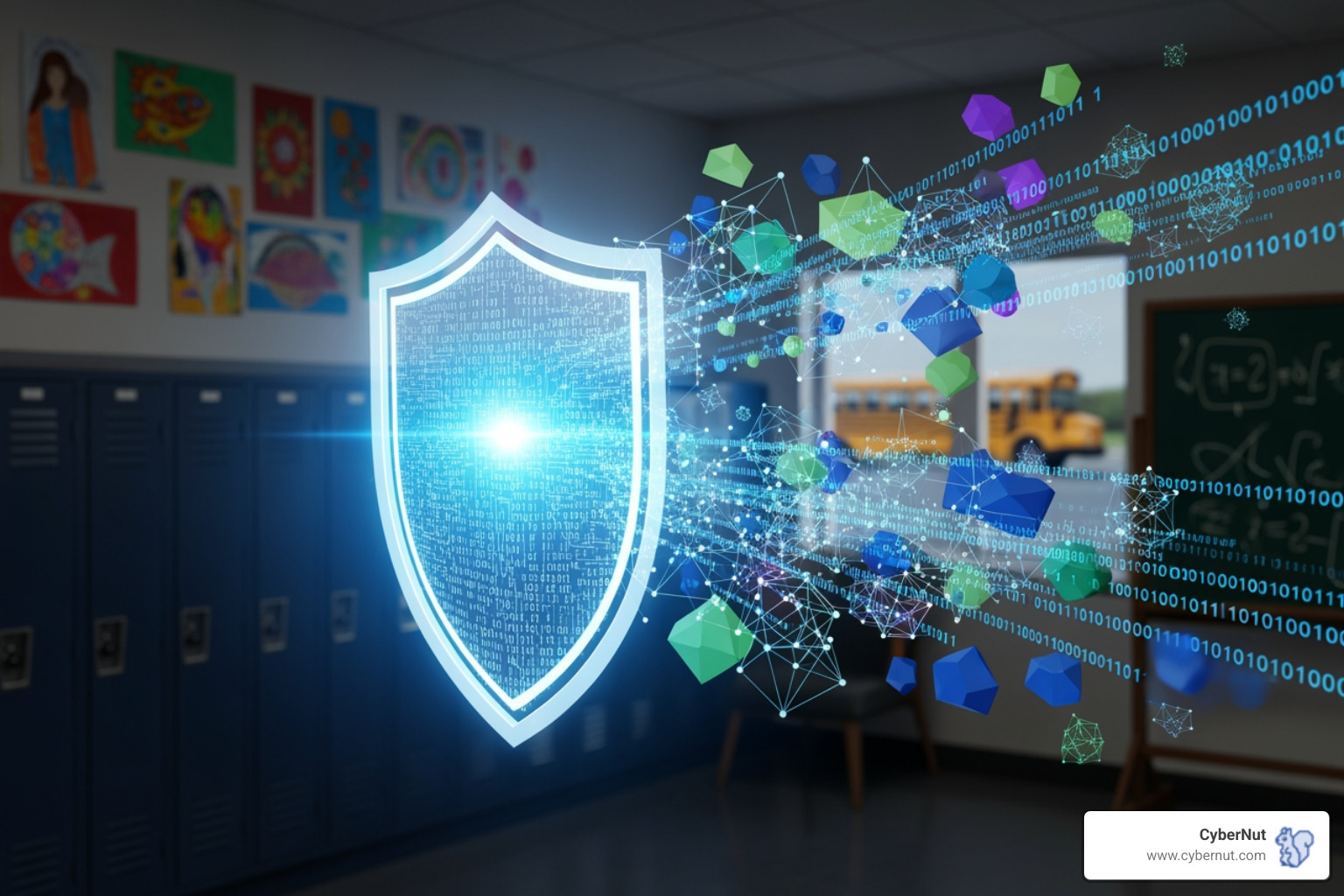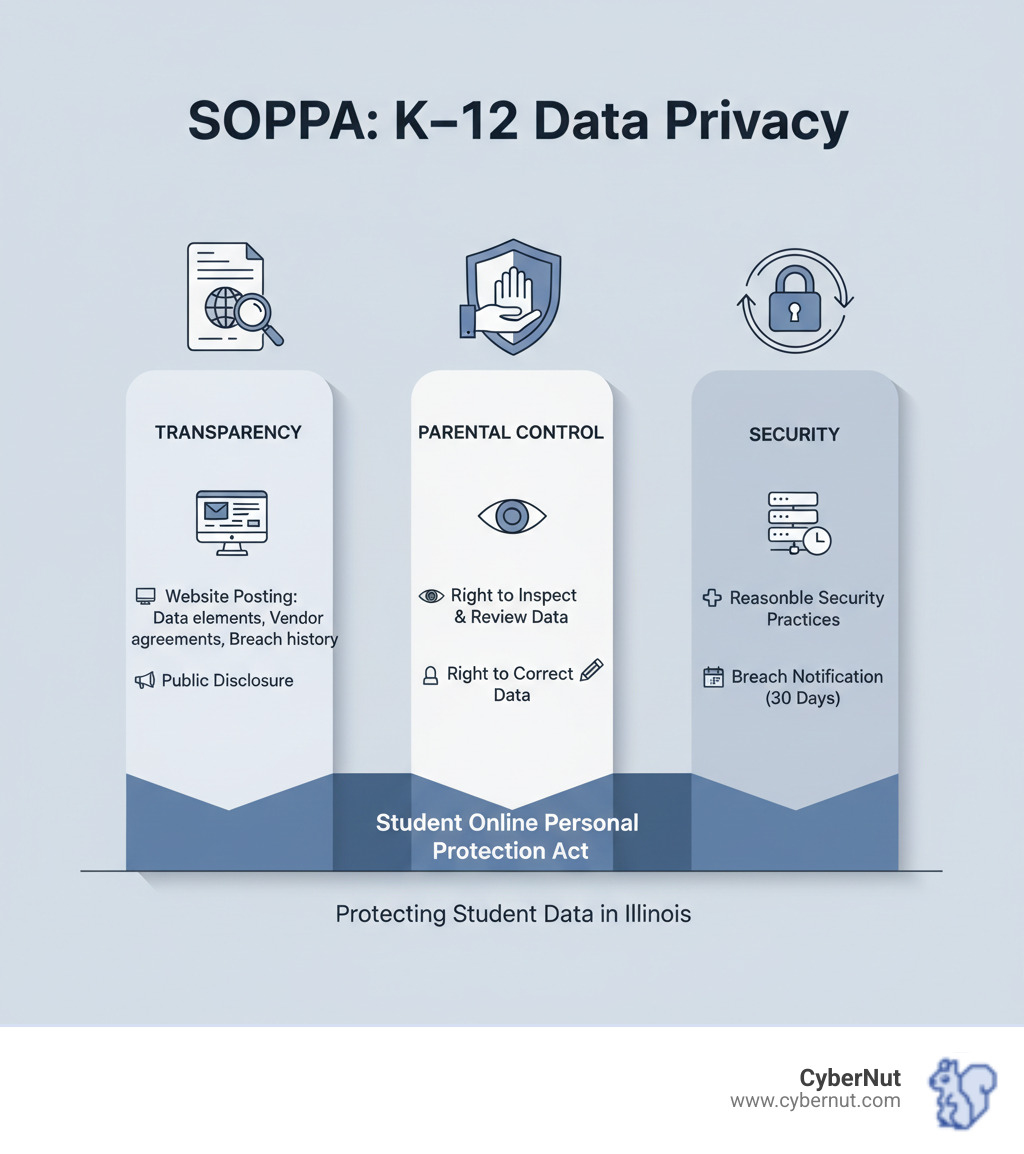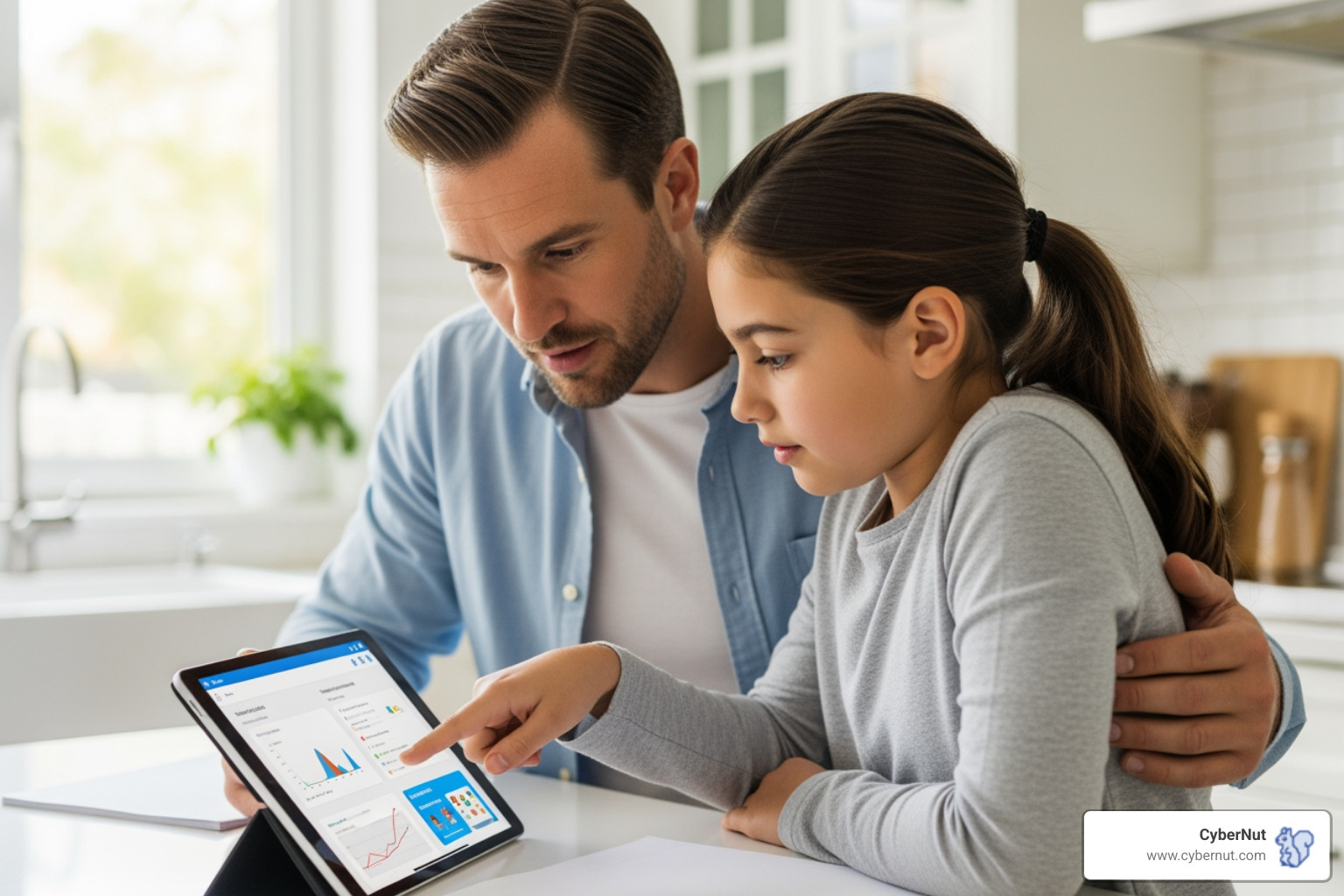
Oliver Page
Case study
November 3, 2025

Understanding All About Illinois' Data Breach Law: Requirements for K–12 Districts begins with SOPPA—the Student Online Personal Protection Act. Updated by House Bill 3606 and effective July 1, 2021, SOPPA is one of the most comprehensive student data security laws in the U.S. It fundamentally changed how K–12 schools, EdTech vendors, and the Illinois State Board of Education must handle student data.
Quick Answer: Here's what Illinois K–12 districts must do under SOPPA:
SOPPA offers stronger data privacy protection by protecting "covered information"—a broad category including everything from names and grades to biometric and geolocation data.
SOPPA is crucial because schools use numerous online tools that collect student data. The law ensures both schools and their vendors are responsible for protecting this data from attackers.
For K–12 IT Directors, SOPPA compliance is a legal mandate enforced via the Illinois Consumer Fraud and Deceptive Business Practices Act. Compliance not only avoids penalties but also builds parental trust and protects students from data breaches.

The Student Online Personal Protection Act (SOPPA) arose from concerns over the increasing flow of student data through digital platforms with little oversight. As schools adopted more EdTech, the need for stronger data safeguards became clear. SOPPA's goal is to protect student privacy while enabling the use of beneficial technology by setting clear rules for schools, the Illinois State Board of Education, and EdTech providers.
You can read the complete legal text here: Official text of the Student Online Personal Protection Act (SOPPA). For a broader perspective on cybersecurity challenges facing Illinois schools, check out our Cybersecurity Insights for Illinois School Districts.
"Covered information" is the core of SOPPA, defined as any non-public, personally identifiable information (PII) linked to a student. The scope is broad, including:
Under SOPPA, a breach is the unauthorized acquisition of computerized data that compromises the security of covered information. An exception exists for good faith acquisition by an authorized employee or agent for a legitimate purpose, provided the data isn't misused or improperly shared.
The term K-12 school purposes is essential, as it defines the legitimate reasons for collecting and using student data. These purposes include instruction (educational software, assessments), administration (enrollment, grading), and collaboration (student-teacher-parent communication). Crucially, data collected for these purposes cannot be repurposed for advertising, sold, or used for non-educational reasons.
An operator is any entity running an online service, website, or app used primarily for K-12 school purposes, such as a third-party EdTech vendor. Operators are ubiquitous in modern classrooms, including learning management systems and testing platforms. Each is an operator under SOPPA with legal obligations for handling student data.
Understanding operator responsibilities is critical for compliance. For guidance on managing these vendors, read our article Beyond Firewalls: How to Secure Data Shared With Third-Party EdTech Vendors.
Understanding the specific responsibilities under SOPPA is critical. The law assigns clear, enforceable duties to both schools and their vendor partners (operators) for protecting student data.

Most data breaches now involve third-party vendors. Therefore, having legally-mandated, solid contracts with these vendors is essential. For specific contract language, see our guide on Contract Clauses Every School Should Demand in EdTech Agreements.
K-12 districts have the primary responsibility for student data protection under SOPPA. Key duties include:
SOPPA places equally demanding requirements on EdTech vendors. They must implement reasonable security measures and delete student data upon request. The law also prohibits operators from using student data for targeted advertising, building profiles for non-educational purposes, or selling the data.
The cornerstone of vendor compliance is the written agreement. Before receiving student data, an operator must sign a contract that defines the purpose of data collection, affirms the school's control, commits to reasonable security, and crucially, allocates costs in the event of a data breach. The agreement must also cover data deletion upon contract termination and require the operator to notify the school immediately of any breach.
For more context, read our article on Third-Party Data Breaches 101.
SOPPA establishes tight, non-negotiable timelines for breach notification.
An operator must notify the school of a breach within 30 calendar days of its findy. The school then has 30 calendar days to notify affected parents. An exception exists if law enforcement requests a delay in writing to avoid interfering with an investigation.
The content of the breach notification is also specified. It must include the breach date, a description of the compromised data, contact information for the Privacy Officer, and information on consumer reporting agencies and fraud alerts.
Having a solid plan is critical. Our guide on Incident Response Planning in K12 walks you through building an effective response strategy.
A powerful aspect of SOPPA is its focus on parental rights. The law gives families specific, legal rights over their children's data, forming the backbone of student data protection in Illinois.

SOPPA's parental rights can be summarized as the right to see, fix, and delete student data.
These parental rights are essential protections that build trust. Our commitment to Privacy means we take them seriously.
Meeting SOPPA's requirement for "reasonable security procedures and practices" is an ongoing commitment. It means building a culture where protecting student data is a shared responsibility.
SOPPA compliance is about building a security culture. For more on this, see our resources on Cybersecurity Training: Empowering K–12 Staff Against Cyber Threats.
Protecting student data in Illinois requires understanding how SOPPA works with other privacy laws like FERPA and COPPA. It adds specific state-level protections to the existing federal framework.
Knowing the consequences for non-compliance underscores SOPPA's importance. The law is enforced by the Illinois Attorney General through the Illinois Consumer Fraud and Deceptive Business Practices Act.
Non-compliance can trigger investigations by the Attorney General, which are thorough and disruptive. The Attorney General can also pursue legal action, leading to court orders and significant financial penalties. Perhaps most damaging is the reputational cost of a violation, which can shatter parental trust.
The good news is that SOPPA provides a clear framework for protection. Consistent compliance and documentation build a strong security culture.
SOPPA doesn't replace federal laws; it adds a specific layer of protection for Illinois students in the digital age.
SOPPA was created because existing federal laws weren't sufficient for the modern EdTech landscape. The bottom line is that these laws work together. Your goal is to understand their overlap and meet the highest standard, which in Illinois means full SOPPA compliance. You can review Further details on HB3606 for more background.
SOPPA is a critical framework for Illinois K-12 districts, not just a compliance hurdle. It proactively protects student data by empowering parents, demanding transparency from schools, and holding vendors accountable.
Key takeaways for K-12 leaders:
CyberNut understands the unique security challenges K-12 districts face. Our custom, gamified micro-trainings on phishing awareness are designed to empower your staff and strengthen your district's resilience. When it comes to student data, prevention is key.
Don't wait for a breach to find your vulnerabilities. Take the first step toward a more secure future. Get your free Phishing Audit today to assess your district's risk from common cyber attacks.
For more insights on strengthening your cybersecurity, explore more cybersecurity resources for schools. Let's work together to make our schools safer.

Oliver Page

Some more Insigths


Back